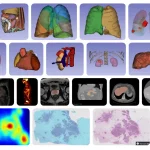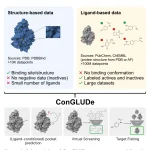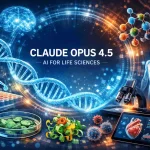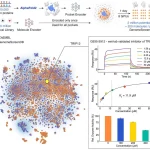Owkin, an AI biotech company, has successfully used federated learning (FL) for the first time to train deep learning models on histopathology data from multiple hospitals without the need for the data to be transferred outside of hospital security systems. This groundbreaking achievement was reported in a study published in Nature Medicine.
The unveiling of this new finding opens the door for advanced medical research utilizing extensive multi-center data sets, enabling AI models to overcome the limitations of studies conducted in a single location. This has the possibility of leading to significant advancements in precision medicine through the application of secure and confidential AI technologies.
Triple-negative Breast Cancer
Triple-negative breast cancer (TNBC) is a rare and aggressive form of cancer with limited treatment options. The standard approach for treating triple-negative breast cancer in its early stages is neoadjuvant chemotherapy (NACT), but the effectiveness of this treatment varies greatly between patients. The cause of this variation is unknown, partly due to a lack of triple-negative breast cancer data.
To address this issue, the researchers at Owkin created models that predict how patients with triple-negative breast cancer will respond to neoadjuvant chemotherapy. Researchers at Owkin were able to identify potential biomarkers from digital pathology slides by analyzing data from four of the top French hospitals. This could potentially lead to more personalized medical care for patients, directing them toward less toxic or experimental treatments.
Federated Learning Model & Data Security
The team used federated learning, which allows multiple organizations to collaborate on artificial intelligence projects while keeping data private and secure. They used Substra, an open-source software developed by Owkin that allows every step of the process to be tracked and traced using advanced technology. This is the first time machine learning models have been trained using medical data from multiple hospitals with no data leaving the hospitals. Previously, similar studies were limited to simulating this type of setup with fictitious data. This is a significant accomplishment in medical research that demonstrates the real-world benefits of artificial intelligence.
The researchers collected massive amounts of data from 650 patients at four different medical centers in France, including the Institut Curie in Paris, the Centre Léon Bérard in Lyon, the Gustave Roussy in Villejuif, and the IUCT Oncopole in Toulouse. This is one of the greatest data collections on triple-negative breast cancer ever assembled for this type of analysis.
The study continues the work of Owkin in utilizing federated learning to allow pharmaceutical companies to work together on finding new drugs while keeping privacy, security, and competition in mind. The MELLODDY project, which was completed this year, demonstrated that it is possible to collaborate on AI-driven drug discovery on a large scale using FL, which is a major breakthrough for the industry. Not only does FL address concerns about privacy and security, but it also makes managing data easier by eliminating the need to transfer data and promoting more collaboration among researchers.
Conclusion
Using federated learning, Oukin’s recent research has made significant advances in medical technology by training deep learning models on multiple hospitals’ histopathology data. With the help of this new approach, data from a number of medical institutions can be combined to create a more precise and personalized approach to treating patients. Research like this could change how medical professionals treat the disease. It represents a significant advance in the use of data and technology to improve healthcare for all patients.
Article Source: Reference Paper | Reference Article
Learn More:
Top Bioinformatics Books ↗
Learn more to get deeper insights into the field of bioinformatics.
Top Free Online Bioinformatics Courses ↗
Freely available courses to learn each and every aspect of bioinformatics.
Latest Bioinformatics Breakthroughs ↗
Stay updated with the latest discoveries in the field of bioinformatics.
Dr. Tamanna Anwar is a Scientist and Co-founder of the Centre of Bioinformatics Research and Technology (CBIRT). She is a passionate bioinformatics scientist and a visionary entrepreneur. Dr. Tamanna has worked as a Young Scientist at Jawaharlal Nehru University, New Delhi. She has also worked as a Postdoctoral Fellow at the University of Saskatchewan, Canada. She has several scientific research publications in high-impact research journals. Her latest endeavor is the development of a platform that acts as a one-stop solution for all bioinformatics related information as well as developing a bioinformatics news portal to report cutting-edge bioinformatics breakthroughs.
- Dr. Tamanna Anwar
- Dr. Tamanna Anwar
- Dr. Tamanna Anwar
- Dr. Tamanna Anwar
- Dr. Tamanna Anwar
- Dr. Tamanna Anwar
- Dr. Tamanna Anwar
- Dr. Tamanna Anwar
- Dr. Tamanna Anwar
- Dr. Tamanna Anwar
- Dr. Tamanna Anwar
- Dr. Tamanna Anwar
- Dr. Tamanna Anwar
- Dr. Tamanna Anwar
- Dr. Tamanna Anwar
- Dr. Tamanna Anwar
- Dr. Tamanna Anwar
- Dr. Tamanna Anwar
- Dr. Tamanna Anwar
- Dr. Tamanna Anwar
- Dr. Tamanna Anwar
- Dr. Tamanna Anwar
- Dr. Tamanna Anwar
- Dr. Tamanna Anwar
- Dr. Tamanna Anwar
- Dr. Tamanna Anwar
- Dr. Tamanna Anwar
- Dr. Tamanna Anwar
- Dr. Tamanna Anwar
- Dr. Tamanna Anwar
- Dr. Tamanna Anwar
- Dr. Tamanna Anwar
- Dr. Tamanna Anwar
- Dr. Tamanna Anwar
- Dr. Tamanna Anwar
- Dr. Tamanna Anwar
- Dr. Tamanna Anwar
- Dr. Tamanna Anwar
- Dr. Tamanna Anwar
- Dr. Tamanna Anwar
- Dr. Tamanna Anwar
- Dr. Tamanna Anwar






